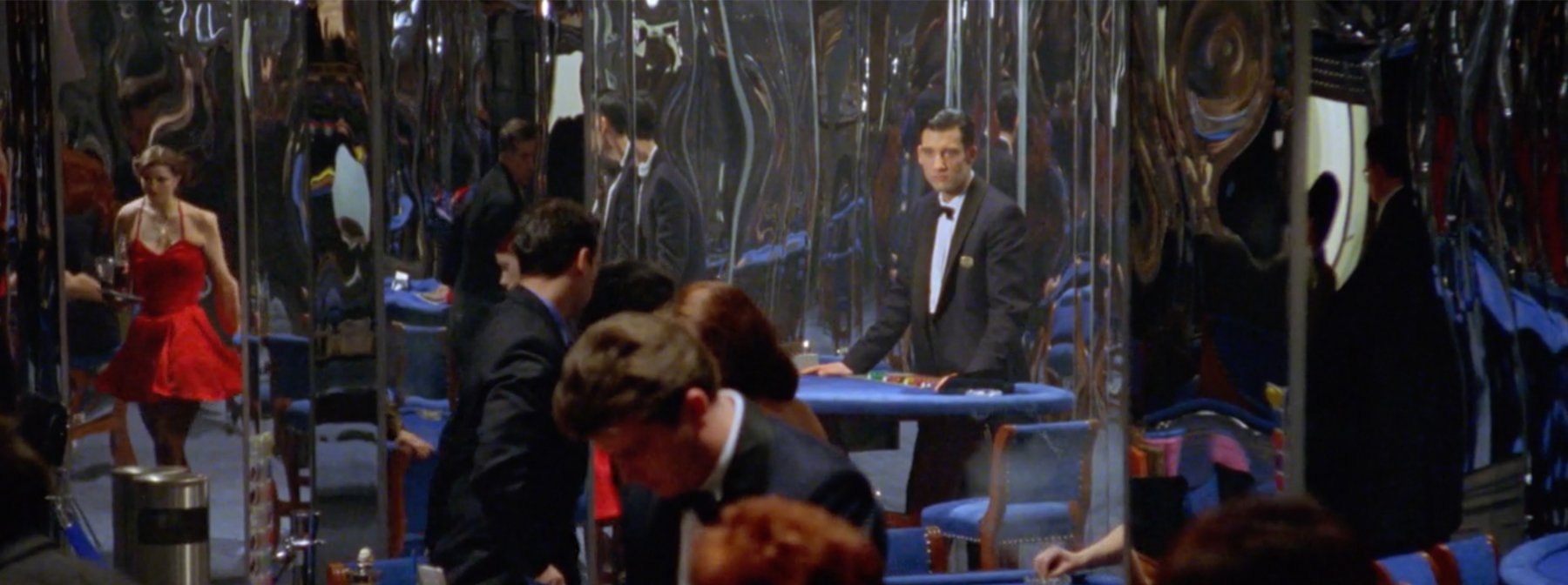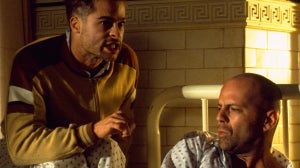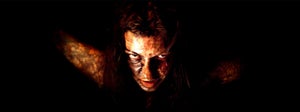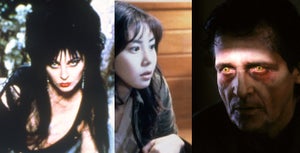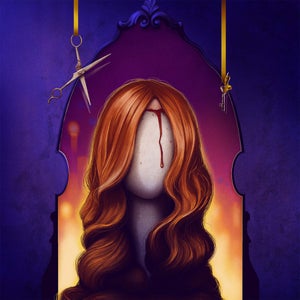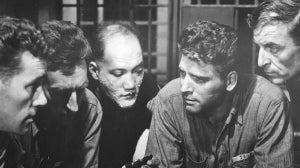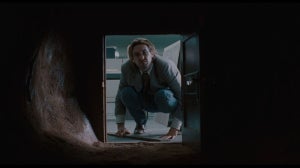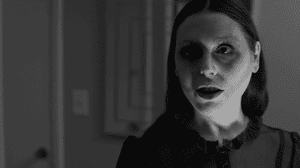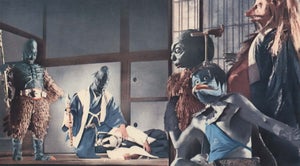
With the edgy neo-noir thriller Croupier (1998), receiving the full-blown Arrow treatment, it seems fitting that we should delve into the back catalogue of its much-loved British director, Mike Hodges. Born in Bristol, 1932, as a young man he gravitated towards a career in television the burgeoning new medium. Finding himself first employed as a teleprompt operator, this may have seemed like a lowly position, but importantly, it gave him a front-row view of the machinations of production and direction. He quickly progressed to writer and director, working on shows like Granada’s World in Action and ABC’s Sunday Break as well as producing two TV movies Suspect (1970) and Rumour (1970). But it would be Hodges’ cinematic journey that would establish him as one of the UK’s most accomplished and contrary filmmakers.
Starring Michael Caine, Get Carter (1971), the director’s debut theatrical release was a menacing prospect of kitchen-sink gangsterdom. It burst through the council house door of the early 1970s like an impatient armed robber brandishing its sawn-off shotgun for all to see, unashamed of its ragged appearance and lard-built spare tire hanging over its polyester trousers. Gnarly, grainy and brutal this darker-than-dark thriller incorporating north-south divides, corruption, revenge and child pornography was a shocking yet enticing tale which would create the template for a host of future British crime flicks and TV serials like The Long Good Friday (1980) and The Sweeney. With Hodges at the helm, he was able to fashion something distinctly English. Unlike many of the earlier American Noir productions which seemed populated by little men with big problems and longer shadows, here, we are thrown into a petty world of spite, money and pasty-skinned perverted cheats. Brilliant, unrelenting and grim, Get Carter is perhaps still seen as Hodges’ masterpiece.
https://www.youtube.com/watch?v=kV4XrUDBlfM
Yet, as Val Guest, another Brit director had proved beforehand, not doggedly clinging to the much over-used auteur title, afforded the freedom to explore other less expected channels. Quickly following up Get Carter with another Caine vehicle, Pulp (1972) a black comedy, and moving into the realms of adult science fiction with The Terminal Man (1974) and out-and-out horror with Damien: Omen II (1977) though his directorial skills would remain uncredited for the latter, he perhaps took his biggest divergence from his dark beginnings when he was commissioned to work on the Dino De Laurentiis comic book fantasy pic Flash Gordon (1980). Turned down by George Lucas and after an attempt to get Federico Fellini involved completely failed, Nicolas Roeg fresh from The Man Who Fell to Earth (1976) was hired. However, after the notoriously impatient Italian producer couldn’t get on board with Roeg’s vision, the job was finally handed to Hodges. Given the production’s changing origins, it seems a miracle that he was able to pull anything out of his hat for this strange departure of a film. And if we take the movie’s separate parts into account, it’s difficult to see how this could have possibly worked. Its campiness, the inexperienced performance of its leading man and the odd casting of Peter ‘Jason King’ Wyngarde as a masked sidekick, didn’t seem to offer up much hope. However, magically, when thrown together, Hodges presents us with a gloriously entertaining and flamboyantly adept comic strip hit.
Just as Get Carter allowed itself to wallow in the grisly world of remorseless street-level criminality, Flash Gordon too, becomes exactly what it needs to be, a technicolour, art deco laser beam shot straight into the heart of a child’s imagination. Filled to the brim with alien worlds and outlandish characters and situations, this is an all-action, but no less eccentric take on the style of the original 1930s serials, given a Thatcher-era dose of vibrant humour and adult wit. Hawkmen, Tree people and even rock band Queen all band together in a red and gold clash of personalities to take on the movie’s main big bad, Ming the Merciless, wonderfully played by a straight-laced Max von Sydow.
But just a few years after Sam Jones as Flash had crash-landed his rocket cycle into Ming’s party, Hodges found himself in charge of yet another sci-fi vehicle, Morons from Outer Space (1985). But while his previous space-bound adventure had worked its full-colour magic on adults and children alike, this ‘misfire’ didn’t so much fly as come crashing down to earth in a blaze of painfully unfunny mediocrity. And while his next feature Prayer for the Dying (1987) would fare slightly better critically, a touch of miscasting and some seriously bad Irish accents would pretty much guarantee that this was never going to be anyone’s favourite film.
https://www.youtube.com/watch?v=O6uOHnxf85g
Black Rainbow (1989), however, saw Hodges return to form. And though this might arguably be his least known film, it remains a skilfully delivered, brooding and uneasy bit of American Southern Gothic. Not really a horror film and not just a psychological thriller it seems to haunt the dusty corridors of a separate mind-space, providing an eerie story of clairvoyance, Christian double standards and small-town corruption. Both bleak and utterly fascinating, with characters sometimes appearing in different locations at the same moment, it’s a low-key reminder of just how Hodges could take command of production. Providing the script too, he fully immerses us into this deeply unfathomable mystery, where for once, the promise of nothing is what it seems, is loyally kept.
But just like his anti-hero Jack Carter, it seems that Hodges himself couldn’t resist returning to old stomping grounds with his last movie I’ll sleep when I’m Dead. Like his debut feature, it too centres on a man returning to his home town to uncover the truth about his brother’s mysterious death. Starring Croupier's Clive Owen, it presents us with other similarities to Get Carter too in the form of sexual abuse plotlines and, of course, revenge of sorts is also metered out. However, whereas the former ends with the finality of a single gunshot, here instead, Hodges leaves us with a note of ambiguity, which seems to chime not just with the film’s plot but with the director’s whole career.
Whether we class Hodges as the anti-auteur or simply a highly efficient workaday director who just happens to have made some of the most memorable productions of the late 20th century, what is not in doubt is his ability to create solid movies which are not just dressed in the fashions of the day but also reflect the deeper yearnings of those eras. In that sense, Flash Gordon might be seen as a tights-and-glitter-clad prayer that the next decade will be brighter and better than the last and Get Carter can be viewed as the most callous view of the 70s put on celluloid, its host of main characters and extras, look shell-shocked and battered, having been denied the party of the 60s they now stare blankly into a grim new reality, even worse than what they’d had before. Hodges can offer us hope or damnation but more importantly, he has applied his considerable skills to whatever he has been presented with treating his cinematic path as both winding and chameleon, allowing us to follow eagerly behind.

